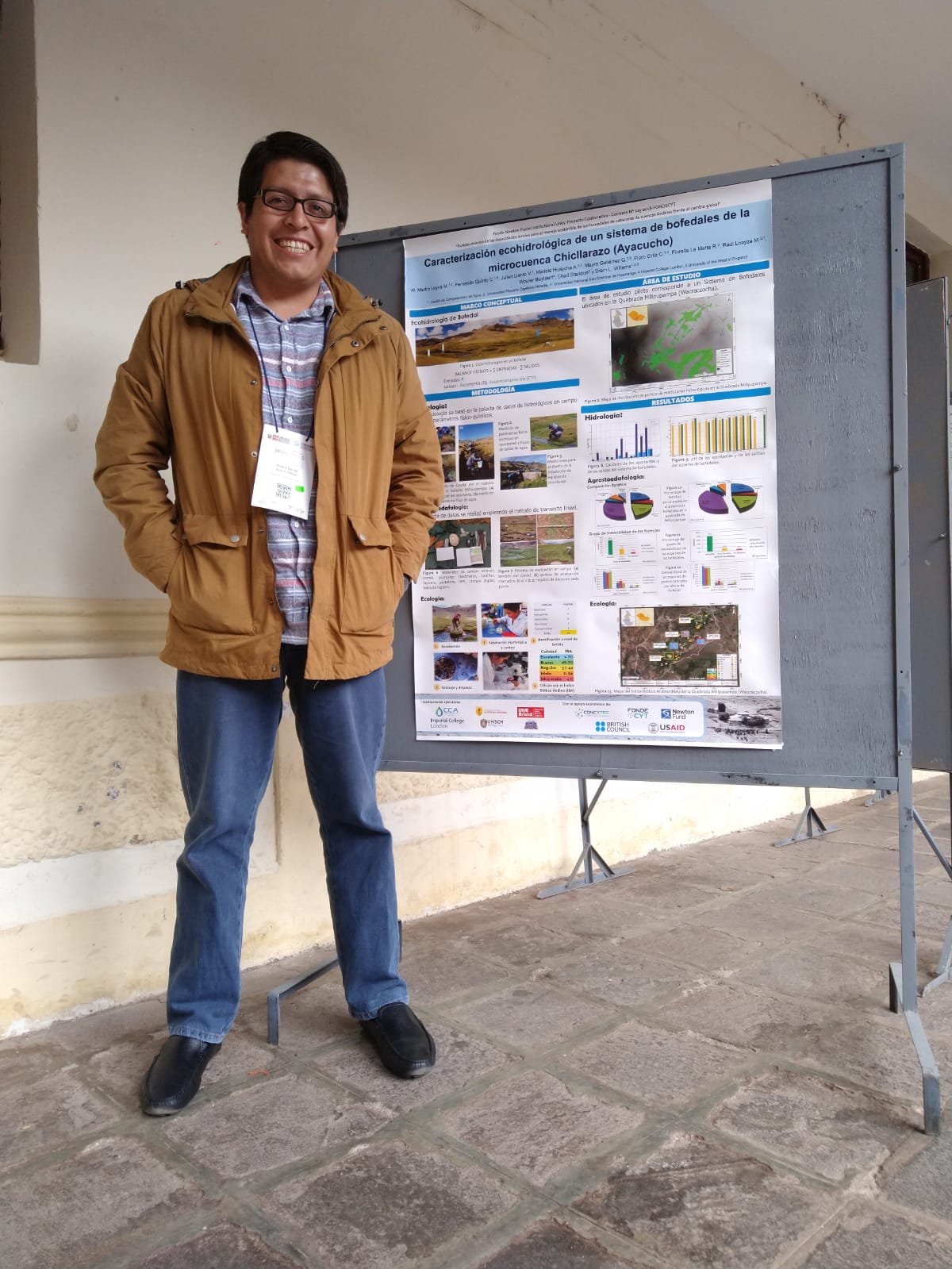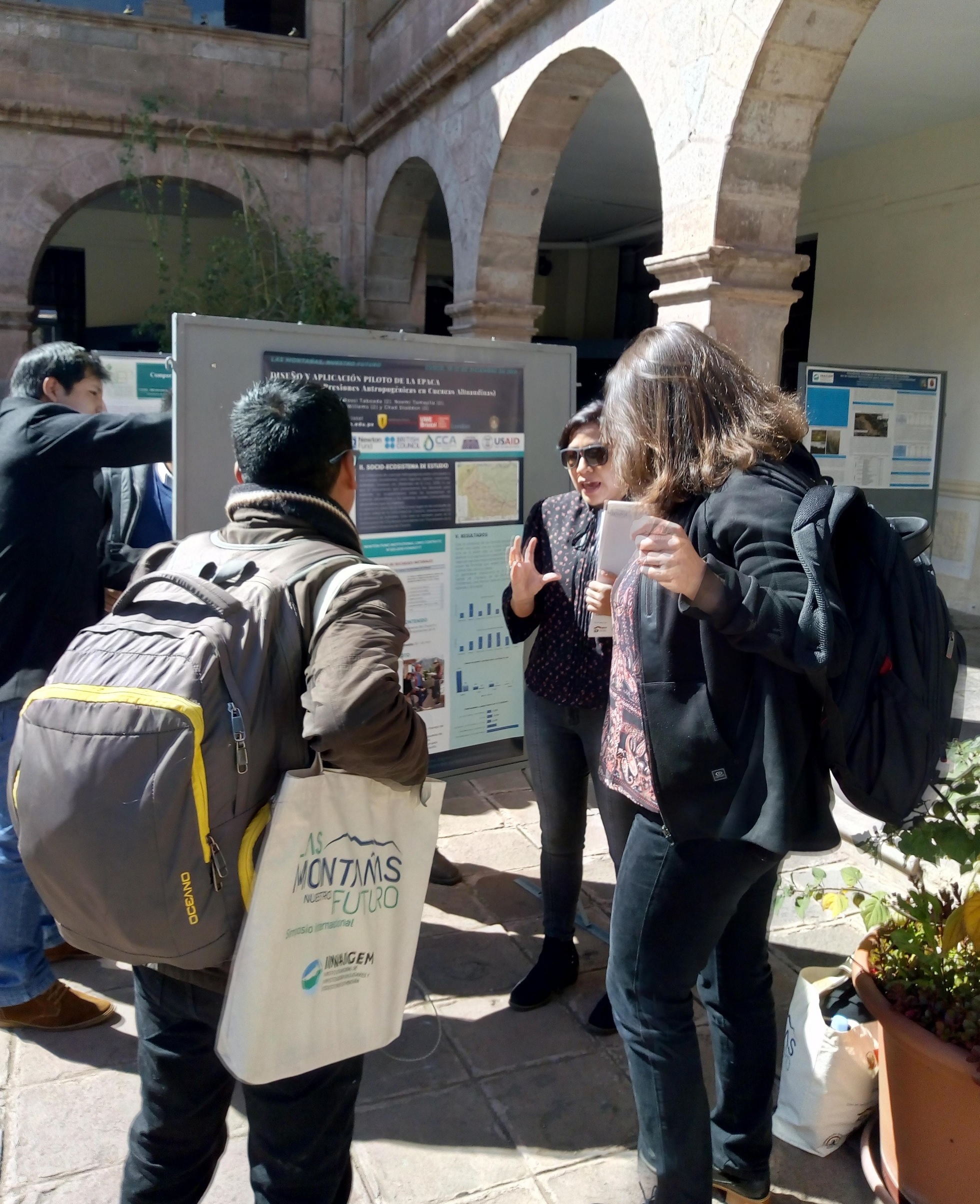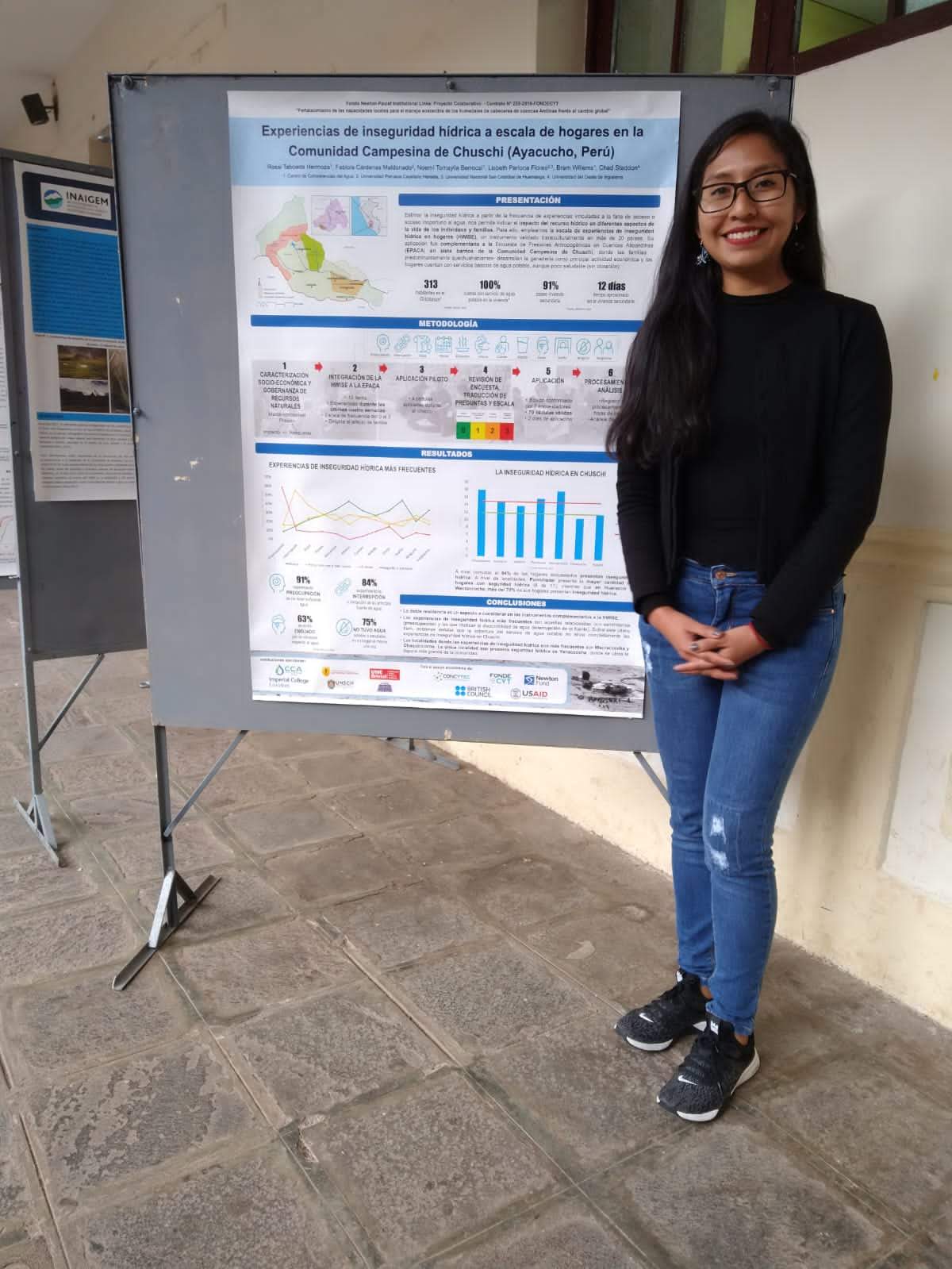Three researchers from the Centro de Competencias del Agua (CCA) presented posters at the International Symposium ‘The mountains: Our future’, organized by the National Institute of Glaciers and Mountain Ecosystems (INAIGEM) at the Convention Center of the Provincial Municipality of Cusco (10-12 December).
The event aimed to communicate the findings of research on the effects of climate change on mountain ecosystems and tropical glaciers, identify scientific research on the recovery of ecosystem services and proposals for action against glacial retreat, and analyze whether these findings have contributed to public policies or actions for adaptation to, and mitigation of, climate change.

The posters were the result of the Newton-Paulet Fund – Institutional Links Project “Strengthening local capacities for the sustainable management of wetlands in the Andean basins facing global change” (FONDECYT, Contract 225-2018), which had as a study area the micro basin of Chicllarazo, in Ayacucho, Peru. The first poster was presented by Walter Martín Leyva Molina, the coordinator of the hydrological component of the project. The first part of his poster focused on hydrological characterization from measurements of water flows, the registration of the floristic composition, the collection of soil samples and the analysis of hydrometeorological data. This information is intended to lead to the design of a monitoring system based on low-cost sensors. The second part focused on the evaluation of ecosystem quality by measuring chemical parameters, and establishing relationships with the structure of the community of bioindicators (macroinvertebrates) in streams and bofedales. With this, aquatic biodiversity is estimated, which can be used to describe water quality through the Andean Biotic Index. The results were reflected in thematic maps that identified the distribution of the bofedales in Millpupampa.

The second poster was presented by Fabiola Cárdenas Maldonado, researcher of the socioeconomic component of the project. Her poster, entitled ‘Design and pilot application of the survey of anthropogenic pressures in high Andean basins (EPACA)’ presented the proposal for a data collection instrument to assess the anthropogenic pressures that take place in an affected socio-ecosystem. Based on the Pressure-Impact-Response scheme, the EPACA contemplates five dimensions: 1) the geographical location; 2) the socioeconomic characterization of families; 3) economic activities; 4) domestic activities; and, 5) the development of natural resource management techniques. Part of the socio-economic characterization, the EPACA contemplates questions about the phenomenon of double residence, because of its relevance to the management of resources and the food security of the communities. Fabiola explained the scope and limitations of the instrument from the pilot application in the peasant community of Chuschi (Ayacucho) in July 2019.

I presented the third poster, entitled ‘Experiences of water insecurity at household level in the Chuschi peasant community (Ayacucho, Peru)’. It highlights the HWISE (Household Water Insecurity Experiences) scale, a transculturally validated instrument, and the results of its application to families in seven locations in Chuschi. Among the results, I noted that the most frequent experiences are the “worry” of not having enough water and the “interruption” or limitation of the main source of water. The results showed that only one locality could be said to be water secure. With this pilot application in Peru we can point out – as in the case of the EPACA – the relevance of double residence, which in the case of HWISE does not allow us to specifically identify where these experiences of water insecurity are located more accurately.
In sum, this event was not only an opportunity to communicate the results of our research project, but it allowed us to receive valuable feedback from a specialized academic community. We thank INAIGEM for organizing this event and for selecting our work for inclusion.
The book of conference abstracts (in Spanish) is available here.
